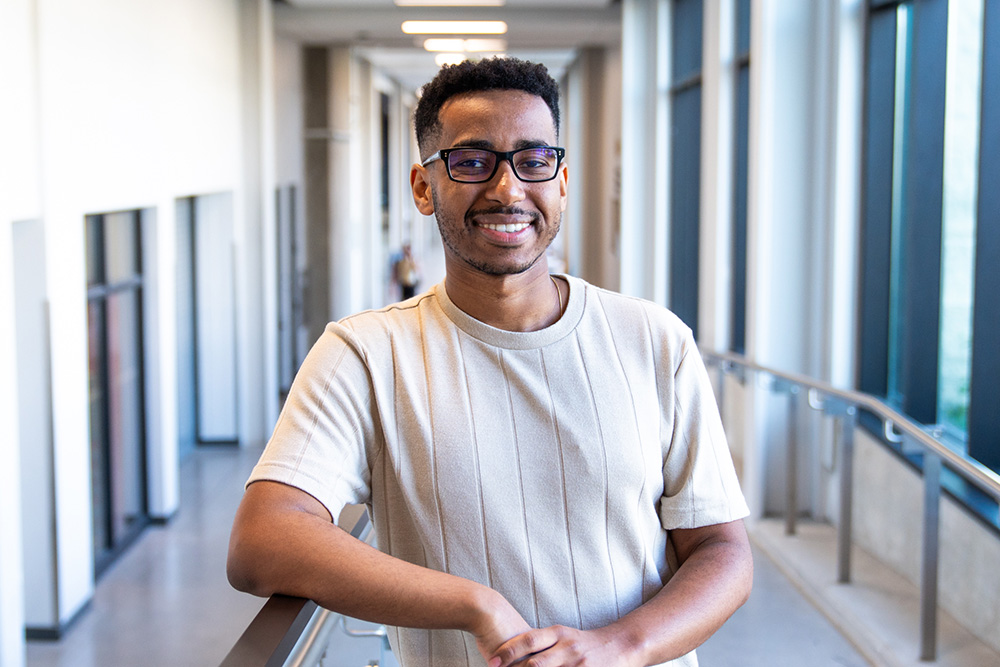Media
Contact
Communications Specialist
Faculty of Engineering
Spencer Engineering Building
Room 2072
Western University
Tel: 519-661-2111 ext. 87015
Email: engineeringcomms@uwo.ca
Meet Noah Argaw, IBET Fellow working at the intersection of machine learning and biochemistry

PhD student Noah Argaw, IBET Momentum Fellow. (Jacob Arts/Western Engineering)
Noah Argaw, PhD student in the department of chemical and biochemical engineering and the School of Biomedical Engineering, is Western’s newest Indigenous and Black Engineering and Technology (IBET) Momentum Fellow.
The IBET Momentum Fellowship, created in partnership with several universities across Ontario, supports and increases the representation of Indigenous (First Nations, Inuit and Métis) and Black graduate students in STEM programs. Fellowship recipients receive financial support, mentorship, training and networking opportunities to foster a robust professional community for participating PhD candidates.
“This award will allow me to access as many available resources as possible to continue to enhance my project, bringing about results that I am confident would significantly contribute to the field I’m in,” said Argaw.
From Toronto to Western
Before joining Western, Argaw studied at the University of Toronto, where he focused on machine learning in conjunction with biochemistry.
“I became very fascinated with these fields and how they intersect, which motivated me to continue studying them at the graduate level,” he explained.
That curiosity brought him to Western, where he first completed a master of engineering science (MESc) before beginning his PhD under the supervision of professor Kibret Mequanint.
Research at the intersection of AI and health
Now a doctoral researcher, Argaw is exploring how artificial intelligence can advance regenerative medicine.
“My work, which is very nascent, focuses on applying machine learning algorithms to boost the efficiency of bone tissue scaffold fabrication,” he said.
Bone tissue scaffolds — engineered structures designed to help repair or replace damaged bone — hold immense promise for patients with severe tissue defects. By integrating AI into the design and fabrication process, Argaw hopes to help accelerate treatment solutions.
“The IBET scholarship provides me with a strong foundation necessary to further my research in this very complex and growing field in AI and biochemical engineering,” he said.
Towards the future of engineering
Argaw believes programs like IBET are critical for opening doors to more diverse voices in research and innovation.
“Because of new findings and technological advancements in these fields, we need more engineers in graduate studies,” he said. “Programs like IBET will help new students achieve their research goals.”
Looking ahead, he envisions machine learning becoming a core part of tissue engineering.
“I hope that in the near future, we will be able to integrate machine learning in tissue scaffold design systems that would quickly and efficiently output optimal tissue scaffolds that would help treat patients with severe tissue defects,” said Argaw.

